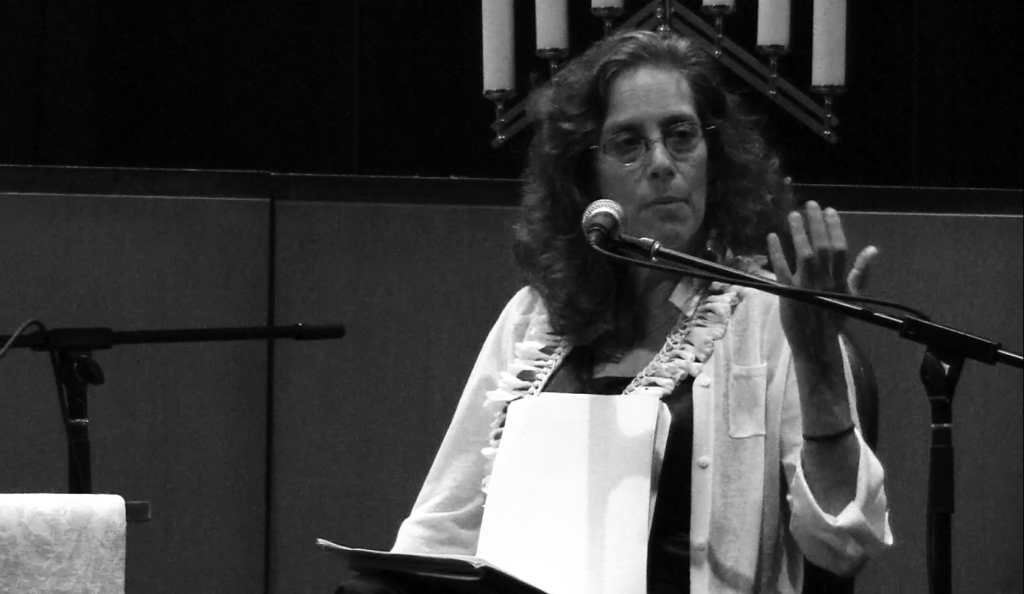In a new paper, distinguished researcher and faculty at The City University of New York, Dr. Michelle Fine, explores the relationship between science and justice, a relationship she describes as “fragile, fraught, and essential.” As a founding member of the critical participatory action research field, she advocates for research that is conducted “with (not on or for) communities most affected.”
She asserts that studying the experience of injustice through the lenses of those most marginalized lends to the possibility of re-imagining what alternatives could be. In turn, such research, inspired by the radical and liberatory work of people such as W.E.B. DuBois, Marie Jahoda, John Dollard, Kenneth and Mamie Clark, and Ignacio Martín-Baró, has the potential to shift public policy toward more just practices. She describes her role as a critical psychology researcher:
“I typically enter these varied sites of inquiry from the bottom or the margin, through a tear in the fabric of the nation, to reveal with statistical and narrative evidence the consequences of inequity and lift up for analysis social policies that might be more just.” She continues, “As I argue in my new book, participatory public science, like public broadcasting, is central to sustaining and engaging diverse, participatory democracy, and to aligning psychological inquiry within human-rights struggles.”

In this recent paper, Fine introduces one project in particular: the 4-year multimethod evaluation project titled Changing Minds. A team of researchers including eight women in prison and five women from the Graduate Center aimed to investigate the impact of providing college programs in prison to women. This project serves as an example of a critical participatory action research project that was successfully harnessed to influence state and national policy.
The findings demonstrated the following:
- “Attending college in prison significantly reduces reincarceration rates and saves taxpayers’ money.”
- “College in prison improves the sense of safety within the prison environment.”
- “Attending college in prison transforms the lives of students and their children and promotes lasting transitions out of prison.”
These results were widely disseminated. Over 25 years later, and legislators continue to refer to the Changing Minds report. Fine shares:
“…Democrats and Republicans are increasingly calling us, downloading the Changing Minds report, and asking us to consult on their education in and after prison plans. A national coalition of foundations, led by the Ford Foundation working with the Obama administration’s U.S. Department of Education, raised private funds to support higher education in and after prison. A broad-based coalition of advocacy organizations and universities has mobilized to restore Pell Grants, launching private and public-private initiatives for college-in-prison programs, bolstered in part by the Changing Minds report.”
Fine discusses this project alongside epistemological and ethical implications that may guide an exploration of the relationship between science, public policy, and justice. For example, she highlights how participation and collaboration enhance validity, that dissemination should be strategic, the importance of patience and humility throughout the process, and the value in employing multiple methods to strengthen the evidence.
She concludes:
“Energized by the rising movements of young people, educators, workers, women, and individuals cultivating wisdom and movements at the margins, we have tithed social science on behalf of social justice so that we might contribute, humbly, to a different tomorrow.”
**
To hear more about Michelle Fine’s work and on Critical Participatory Action Research, you can access this podcast through the Society for Qualitative Inquiry in Psychology (SQIP) website: http://sqip.org/sqip-podcast-series/podcast-1-fine/
****
Fine, M. (2019). Science and Justice: A Fragile, Fraught, and Essential Relationship. Perspectives on Psychological Science, 14(1), 85-90. (Link)















I don’t know if turning prisons into re education camps is a good idea cause then society would feel less guilt about sending people to prison.
Its already totally out of control all the people in prison for victimless so called crimes and the US more of its people in jails and prisons then any nation in the history of mankind.
Report comment
So in other words, you mean our society should feel more guilt about sending tons of people to prison for victimless so called crimes? I agree, if that is what you’re actually trying to say.
But that doesn’t mean I disagree with you that turning prisons into ‘free higher education for all institutionalized,’ is a really bad idea. Encouraging people to commit crimes, so they may get free education, is a really dumb idea.
But I will say, there’s a really cool non-profit organization in my area that does train previously incarcerated people to do jobs that don’t require college educations, like waiting tables in high end restaurants, fine dining cooking, butchering, pastry chefs, and such.
Although, some of those are also jobs people pay a lot of money to get educated to do. So maybe even that is unjust?
Maybe the “mental health” professionals are now advocating for this because they understand that only the stupid criminals will soon be dumb enough to believe their psychobabble based BS, and scientifically “invalid” DSM injustice system in the future?
Report comment
Maybe we could create ways to afford an education WITHOUT going to prison. The GI Bill had pretty amazing positive effects. A similar program of service would add a lot to our economy and end up with a lot fewer criminals, I’m betting. (Except the white collar kind who already have educations and commit their crimes “legally.”)
Report comment
The problem with “critical” work (critical PAR, critical psychiatry, critical XXXX) is that it comes from and remains within a single order, a single paradigm – basically, the problem is that it’s “critical” and not “radical”. That Fine can point to the system-sustaining utility of her CPAN method (e.g., “Attending college in prison significantly … saves taxpayers’ money.”) shows how fully it fails to see possibilities outside the regnant system. In other words, that “it saves taxpayers’ money” is a nameable “good” derives from a **particular set of socio-political-economic values and priorities. (It’s a parallel sort of “good” pursued by a researcher who, say, studied the effects of better “hospital” meals on the experience of forcibly detained and “treated” “patients”.) That **particular set of socio-political-economic values and priorities probably isn’t shared by her interlocuting “actors” – but they do not have the “permission”, so to speak (that is, the possibility is not built into the research design), to deviate from it. No matter how much they “participation,” that participation is limited by the constraints imposed by the researcher (e,g., Fine), who, no matter all the lip service in the world to a democratic knowledge-making ideal, remains the only authorized knowledge-maker in the group of interlocutors. (Indeed, at the end of the day, who is “interpreting” all the “data” and publishing all the “findings”??)
Report comment